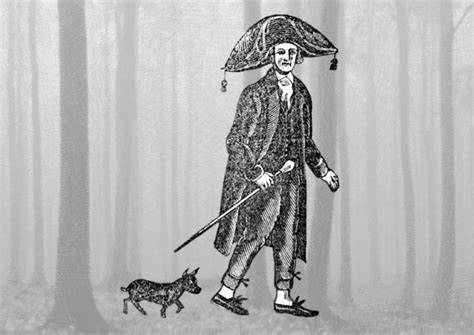In the grand tapestry of American history, few figures stand out quite like Timothy Dexter, a man whose business decisions were so monumentally absurd that they should have led to financial ruin. Instead, through an almost supernatural streak of luck, they made him one of the wealthiest men of his time. His story serves as a peculiar reminder that sometimes success comes not from careful planning, but from a combination of audacity and extraordinary timing.
Born in 1747 to poor Irish immigrants in Malden, Massachusetts, Dexter's early life offered no hints of his future success. At the tender age of eight, he was forced to abandon his education to become an indentured servant on a farm – essentially a form of temporary slavery. After eight years of servitude, he moved to Boston and became a leather tanner, a modest trade that would have likely defined his entire life had fate not intervened.
Dexter's first stroke of luck came through marriage. He wed Elizabeth Frothingham, a wealthy widow who had both inherited her late husband's estate and built her own successful business as a huckster – a remarkable achievement for a woman in the 18th century. This marriage provided Dexter with the capital that would fuel his future ventures, though it wasn't exactly a love match.
What followed was a series of business decisions so bizarre that they've become legendary. When Continental Currency – America's first attempt at paper money – became virtually worthless due to hyperinflation, Dexter invested almost everything he had to buy massive quantities of these worthless bills. This decision seemed like financial suicide until Alexander Hamilton, as the first Secretary of the Treasury, decided to honor these continental dollars at 1% of their face value. Since Dexter had purchased them for far less, he made an enormous profit overnight.
But that was just the beginning. In what should have been a textbook example of business folly, Dexter shipped coal to Newcastle, England – a city famous for its coal mining industry. By sheer coincidence, his shipment arrived during a miners' strike, allowing him to sell his coal at premium prices. In another instance, he sent 40,000 bed warmers to the tropical West Indies. While this seemed like a ridiculous venture, the locals repurposed these warmers as molasses ladles, earning Dexter a 70% profit.
Perhaps his most amusing venture involved solving Newburyport's stray cat problem. After collecting hundreds of strays for a small fee, he shipped them to Caribbean warehouses plagued by rat infestations, turning a tidy profit while simultaneously solving two problems at once.
As his wealth grew, so did his eccentricities. He built the grandest mansion in Newburyport, decorating its grounds with 40 wooden statues of historical figures, including himself. The plaque under his statue proclaimed him "the first in the East, the first in the West, and the greatest philosopher in the Western World." He began calling himself "Lord" Dexter, offering free food and drinks to anyone who used his self-appointed title.
His personal life was considerably less successful than his business ventures. His relationship with his wife was so strained that he began telling people she was dead, explaining away her presence by claiming she was merely her own ghost. In perhaps his most bizarre act, he faked his own death and attended his funeral, only to emerge from hiding to beat his wife with a cane because she wasn't crying enough at his "passing."
Dexter's crowning achievement in eccentricity was his book, "A Pickle for the Knowing Ones." Despite being nearly illiterate, he published this rambling memoir completely devoid of punctuation. When readers complained about this oversight, he responded by adding an appendix in the second edition filled with punctuation marks, inviting readers to "pepper and salt it as they please."
Looking back, historians debate whether Dexter was truly the fool history has painted him to be. While his methods were unconventional and his behavior eccentric, there's an argument to be made that he possessed an uncanny ability to recognize hidden value in unusual opportunities. His success might not have been purely accidental but rather the result of an intuitive understanding of market inefficiencies, albeit coupled with an extraordinary amount of luck.
Timothy Dexter's story reminds us that success doesn't always follow a conventional path. While his methods couldn't be recommended as a business strategy, his tale serves as a fascinating example of how sometimes the most unlikely ventures can lead to remarkable success. Whether you view him as a lucky fool or an unorthodox genius, there's no denying that Lord Timothy Dexter earned his place in the annals of American history as one of its most colorful and unexpected success stories.



